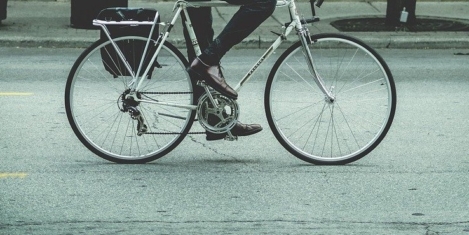To provide the best experiences, we use technologies like cookies to store and/or access device information. Consenting to these technologies will allow us to process data such as browsing behaviour or unique IDs on this site. Not consenting or withdrawing consent, may adversely affect certain features and functions.
The technical storage or access is strictly necessary for the legitimate purpose of enabling the use of a specific service explicitly requested by the subscriber or user, or for the sole purpose of carrying out the transmission of a communication over an electronic communications network.
The technical storage or access is necessary for the legitimate purpose of storing preferences that are not requested by the subscriber or user.
The technical storage or access that is used exclusively for statistical purposes.
The technical storage or access that is used exclusively for anonymous statistical purposes. Without a subpoena, voluntary compliance on the part of your Internet Service Provider, or additional records from a third party, information stored or retrieved for this purpose alone cannot usually be used to identify you.
The technical storage or access is required to create user profiles to send advertising, or to track the user on a website or across several websites for similar marketing purposes.
 More and more politicians and business leaders are keen to see the UK ease lockdown and begin a move towards returning to work. Is it’s too early to plan the exit from lockdown? Maybe. But either way, the general chatter about what a post COVID19 will look has predictably fanned the debate about how workplace will cope. It is a good debate, with valid ideas shared by the likes of Antony Slumbers, Neil Usher and others. More →
More and more politicians and business leaders are keen to see the UK ease lockdown and begin a move towards returning to work. Is it’s too early to plan the exit from lockdown? Maybe. But either way, the general chatter about what a post COVID19 will look has predictably fanned the debate about how workplace will cope. It is a good debate, with valid ideas shared by the likes of Antony Slumbers, Neil Usher and others. More →















 The volume of transactions in London’s West End was down 45 percent, the lowest for January in over 10 years. This is to be expected with the continued ongoing Brexit negotiations, according to Savill’s, who expect to see a lower volume of transactions complete over the first quarter of this year. Despite this, space under offer still remains well above the long-term average, with 237,000 sq ft going under offer during the month. This held the overall total at just over 1.2m sq ft, giving a strong indication that leasing activity over the course of 2019 will remain robust. Pre-lets accounted for 42 percent of the overall sq ft let in January and there were five transactions to the Insurance & Financial sector and four to the Tech & Media sector.
The volume of transactions in London’s West End was down 45 percent, the lowest for January in over 10 years. This is to be expected with the continued ongoing Brexit negotiations, according to Savill’s, who expect to see a lower volume of transactions complete over the first quarter of this year. Despite this, space under offer still remains well above the long-term average, with 237,000 sq ft going under offer during the month. This held the overall total at just over 1.2m sq ft, giving a strong indication that leasing activity over the course of 2019 will remain robust. Pre-lets accounted for 42 percent of the overall sq ft let in January and there were five transactions to the Insurance & Financial sector and four to the Tech & Media sector.

























May 5, 2020
From the archive: We shouldn’t rely on narrow ideas to define flexible working
by Luke Munro • Comment, Flexible working, Technology, Wellbeing